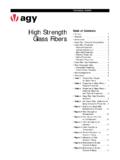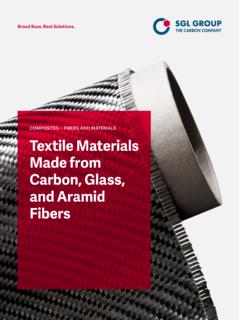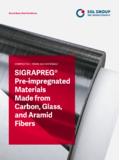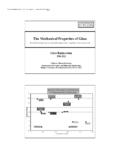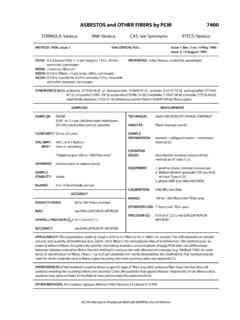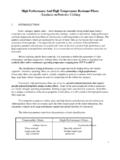Transcription of PTFE 25% Glass Filled Compression Molded
1 PTFE 25% Glass Filled Compression MoldedPTFE 25% Glass Filled exhibits low wear and creep under load. Glass Fibers can beadded in various amounts (5% to 40%) depending upon the application. 25% is the most popular Glass fill percentage used for most applicaitons. Physical PropertiesASTM MethodTypical ValuesSpecific Absorption (24hrs. F) WhiteMechanical PropertiesTensile StrengthD17083100psiTensile ElongationD1708250%Flexural StrengthD7902,200 Flexural ModulusD790210,00 Compressive StrengthD6952200psiCompressive ModulusD695100,000psiImpact Strength (Izod, notched)D256 HardnessShore D59 Tribological PropertiesCoefficient of Friction Rate (PV: 20,000 psi-fpm)D3702 Thermal PropertiesCoefficient of Linear Thermal Expansion (78 to 400 F)D6967110-6/ FHeat Deflection Temperature (@264 psi)D648 Glass Transition Temperature (Tg)D3418 Continuous Service Temperature (Max @ no load)500 FMelting Point621 FElectrical PropertiesVolume ResistivityD257 Dielectric StrengthD149 Dielectric ConstantD150


